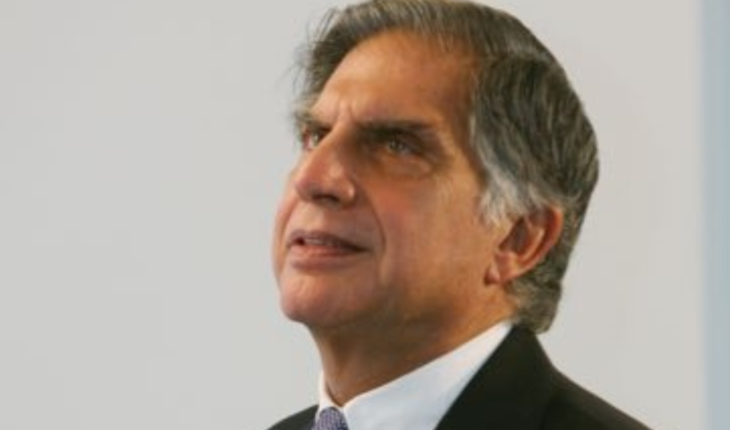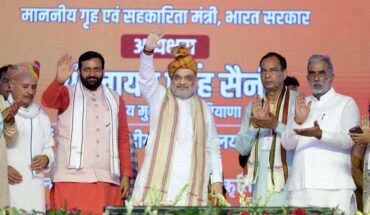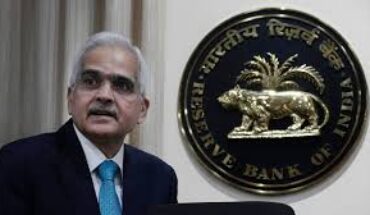The final departure of Ratan Tata from this mortal world ends an era of the Indian tradition of our commitment to the welfare of the common people , their aspirations and empowerment.
As the unquestioned leader of the Indian industry, he not only scripted and defined corporate responsibility, but also symbolised that even by being honest one can achieve his goal.
It cannot be denied that his approach towards corporate social responsibility has been causing much discomfiture to his peers. It is no secret that the company funds earmarked for assisting the projects for the disadvantageous sections are mostly used as a facade for evading taxes. Those , who claim to be the captain’s in the industry actually fund the NGOs set up by bureaucrats and politicians under the pretext of helping the poor. In reality, the company resources are being used for promoting their business interests.
Ratan Tata symbolises or symbolised the ancient Indian tradition of serving the society with the wealth obtained by business and trade blended with his personal commitment and honesty . If the Tatas had to pay money to the insurgents in Assam, it was properly accounted for in the books, though causing huge embarassment to the government of the day for its failure to protect the industrial units. He refused to be cowed down even during the licence and the permit raj imposed on the country in the name of socialism.
During the Emergency years,1975-77, Indira Gandhi and her son, Sanjay, were keen that the Tata Steel should be taken over by the Birlas, but finally good sense prevailed and the suggestion was politely declined. It is stated that the owner of the Indian Express, Ramnath Goenka told K.K. Birla to keep off from the takeover. The steel mill will become non-functional if the consipiracy against Tata is allowed.
It has never been explained why Indira Gandhi, despite being a Bahu or daughter -in-law of a Parsee family harboured so much venom against the Tatas, who are not only the most admired Parsee family in the world, the organization is also the symbol of India’s march to become a developed industrial country. It may be recalled that her husband, Feroz Gandhi, a Parsee was from the family of the sun worshippers of Gujarat. His ancestors had migrated to India from Persia or the present day Iran following their persecution by Muslims. Unfortunately, some stupids in the ruling BJP malign Indira Gandhi for marrying a Muslim due to the Persian name of her husband.
Many believe that her decision to nationalise Air India, a blue chip airline established by Tatas, a symbol of India’s success in commercial aviation, could also be a part of her latent unfriendly approach towards her in-laws. She also did not hesitate to hit the Parsee business interests in key areas like banking.The two Parsee-owned banks, Central Bank and Union Bank, were nationalised during her regime. Her vindictive attitude towards Sam Manekshaw is quite known. He was the first Field Marshal elevated to the coveted position after the Bangladesh War in 1971. He was not only ignored, his pension could be revised only in 2007 . The requests of his daughters for restoring the pension were deliberately delayed by successive governments.
In spite of the step motherly treatment towards the Tatas, Ratan Tata did not deviate from his idealism. He will be remembered for his fearless approach, paying legitimate taxes and remained committed to the welfare of his countrymen. The ideals of the Tata traditions were never compromised during his leadership.
For his countrymen, he would remain a lamppost for the Indian industry and business in an era, when many Indian businessmen are being seen indulging in parking their illegitimate or hush money to off-shore accounts. In spite of the much-trumpeted anti-corruption drive of the present government, much larger funds from India are being siphoned off to the Swiss accounts than in 2014, when Prime Minister Narendra Modi had won the elections on the promise to check the exodus of Indian capital to foreign shores.
He, however, has ended the injustice against the Tatas for finally transferring the Air India back to the world’s most progressive industrial house. It also goes to the credit of Ratan Tata that despite adverse reports he finally accepted the sick giant.
With his death India’s blue collar workers, social scientists, technologists their beloved friend and guide.
I vividly remember that a few years ago, I was suddenly asked to attend a luncheon at a workers’ canteen of a Tata facility in Pune. I was intrigued why my host, a top Tata executive had shifted my luncheon meeting scheduled at an upmarket restaurant to a dinning place of workers. The mystery, however, was soon unfolded, to become an unforgettable event for me, when I joined the que for food with a Rs.ten coupon. As soon as I reached the window for collecting my plate for food, I noticed Ratan Tata with his coupan too was in the queue. He quietly took the food and returned to his office. Later, I learrned that it is a common feature in the Tata companies that top executives share food with their workers.
Inspired by this gesture, I made several efforts during the past several years to have common canteens attended by the big shots with the common staff. I must admit that I have failed despite being trying to impress upon our esteemed political bosses irrespective of their political affiliations, and their all-powerful babus to replicate the Tata experience at the government canteens in the New Delhi. The colonial caste system is so well-entrenched that they continue to believe in the masses are just irrelevant. They are so thick-skinned and having myopic approach whether manning the country’s vast bureaucratic empire or their political bosses accompanied by an unnecessary security presence.
The rituals of sending condolences, messages and tributes from the President and the Prime Minister and other many high and mighty persons of the Indian establishment mourning his death and paying rich tributes would be meaningful if we could promote the ideals Ratan Tata. Otherwise, these tributes occupying media spaces will be just another meaningless rhetoric.
Ratan Tata, however, will continue to symbolise the much-awaited renaissance of the Indian industry and the country’s silent march towards prosperity by generating wealth with a social commitment.
Gopal Misra has been associated with national and international media. His books on journalism and geo-politics have been well-appreciated. Views are personal.





